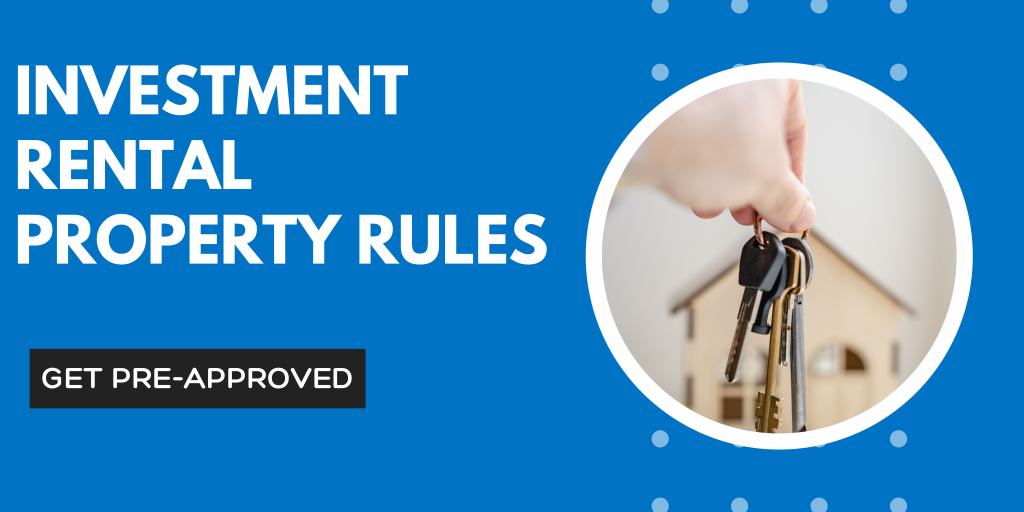There are many different ways to use your home equity for investment purposes. For example, When you finance your home, you have a few options: You have the option to take out a loan against your home’s equity or cash out refinance and get a bigger mortgage. Each option has its pros and cons, and it’s essential to understand them before deciding.
This article will discuss using a home equity loan for investment property. In addition, we will explore the advantages and disadvantages of acquiring one. So if you’re considering operating your home equity to invest in real estate, keep reading!
Defining HELOC And Home Equity Loans
It’s important to comprehend Comparing a home equity loan with opening up a HELOC can help you understand which option is best for your needs. Like a credit card, HELOCs give you money backed by your home. But conversely, with a home equity loan, you’re given one large sum of cash from your lender that you have to pay back gradually in monthly installments.
Can You Use A Home Equity Loan for Investment Property?
It is possible to finance investment property with a home equity loan. It is because home equity loans typically offer lower interest rates than other forms of financing, such as personal loans or credit cards.
Home equity loans are a fantastic way to ensure you have the money you need for investment properties. You can take out a loan using your home as collateral with home equity loans.
This value is then put towards whatever you need the funds for. If you’re looking for an investment property, home equity loans are a fantastic way to afford a down payment or afford repairs and renovations.
However, one thing to remember is that home equity loans typically have higher interest rates than other types. As a result, it’s essential to carefully consider whether a home equity loan is a suitable choice for your investment property.
For example, if you can get a low-interest rate and you’re confident in your ability to make the payments, If you’re looking for a way to finance your investment property, or If you’re looking to finance something, a home equity loan may help.

Ways To Use Your Home Equity For Investment Purposes
Here are some of the most popular:
Take Out A Home Equity Loan.
As mentioned above, you can take a home equity loan and use the funds for whatever purpose you need, including investing in real estate.
Refinance Your Mortgage
Equity in your home can be accessed invest by cashing out, refinancing your mortgage, and taking a larger loan.
Get A HELOC
A HELOC is an additional way to use your home’s equity for investment purposes. A HELOC allows you to borrow a set amount of money that can be used over time.
Pay Off High-Interest Debt.
Utilize your home equity to repay debts with high-interest rates, such as credit cards or personal loans. It will save you money on interest and reduce your monthly payments.
Invest In Stocks Or Mutual Funds
You can use your home equity line to invest in stocks or mutual funds. It can be a great way to grow your wealth over time.
Home equity is a valuable asset used for many different purposes. These are just a few ways to use it to your advantage. But first, talk to a financial advisor about your best options.
Common Factors In Using A Home Equity Loan For Investment Property
Before deciding whether to use a home equity loan for an investment property, there are several factors to consider. Here is a list of some of the most important ones:
Your Credit Score
A higher credit score will give you access to better variable interest rates and lower fees. In addition, a high credit score means you’re more likely to repay a loan.
Lenders use your credit score to decide if you’re a good candidate for a loan. A high credit score increases the likelihood of being approved for a loan with beneficial terms.
Many factors contribute to your credit score, including your payment history and the amount of debt you have. There are many methods to improve your credit score, but two great ways are paying your bills on time and keeping a low debt balance.

Your Financial Standing
It’s essential that you can afford the payments on the loan. Your financial standing is a crucial factor in your life. It can affect your ability to get a loan, buy a car, or even buy a primary residence.
It also affects your ability to get a job, keep a job, and retire comfortably.
The Risk Involved
Assessing the risks of investing in real estate before taking out a loan is essential. First, it is necessary to determine the risks involved.
The first step is to evaluate the property itself. Is it in a good location? Is it well-maintained? Is it likely to appreciate? Next, consider the market conditions. Is the local economy strong? Are interest rates low? Are there any upcoming changes that could affect the property’s value?
Finally, think about your financial situation. Can you afford the monthly payment? Do you have a solid plan for making a profit from the property? By taking the time to assess the risks, you can make sure that you are making a wise investment.
Your Current Income
It would be best to have enough income to cover the loan payments and other associated costs. Therefore, before taking out a loan, you must consider your financial situation and make sure you can afford the payments.
Loan payments typically include the principal, interest, and other associated costs. To cover all these expenses, you will need a steady income to cover the payments.
Depending on the size of the loan and the pay interest rate, your payments could be pretty substantial. As a result, it is essential to ensure that you have a well-paying job or another source of income before taking out a loan.
By doing so, you can stay caught up on your payments and maintain your credit score.
Your Financial Goals
Make sure that the investment aligns with your overall financial goals and that you have a repayment plan.
Ultimately, using a home equity loan for an investment property is a great way to get the funds you need at relatively low-interest rates. However, weighing your options before deciding and ensuring that you can afford the loan payments is essential.
A financial advisor can help determine if a home equity loan suits you. By taking the time to consider your options carefully, Choosing the best financing option for your investment property is essential.
You should compare interest rates, repayment terms, and fees before deciding. A home equity loan can effectively and efficiently fund your real estate investments with the right strategy.
Pros And Cons of Using A Home Equity Loan For Investment Property
PROS
• Low-interest rates
• Tax deductible in some cases
• Quick access to funds
CONS
• Interest isn’t always tax-deductible
• Possible penalty fees for early repayment
• The risk of foreclosure if you cannot make your mortgage payments.
On The Whole
A home equity loan is an excellent option to finance an investment property. However, weighing all your options and ensuring that you are financially secure before taking out the loan is essential.
By understanding the risks involved, assessing your financial standing, considering market conditions, and setting your financial goals, you can ensure that your investments are successful and that you don’t end up over your head. It is also important to remember that a home equity loan is only sometimes the right option for everyone.
Always seek advice from a financial advisor before making any final decisions. By taking the time to evaluate your options, you can make sure that you are making a wise decision and investing in the right rental property.
FAQs
Are tax returns necessary when applying for a home equity loan?
Yes, most lenders will require you to provide tax returns as part of the personal loan application process. By having this information available, your lender can ensure that you can make all of your payments and have a good credit history.
How long does the home equity loan approval process take?
Approval times for home equity loans can differ depending on the lender and your finances. Generally, however, you should expect to receive an approval within a few weeks after submitting your application.
At what age can you reap the most benefits from equity release?
The best age to take out a home equity loan is typically around retirement. It is because retirees have more time to repay the loan and don’t need to worry about making payments while still working.
It can also give them money to spend their senior years comfortably and safely.
Is pay closing costs necessary in Home Equity Loan for Investment Properties?
When you invest in a property using money from a home equity loan, the lender will often add closing costs to your balance. These fees typically cover the cost of processing the loan, ranging from 1-4% of the total loan amount.
Is there a need for a real estate agent in Home Equity Loan for Investment Property?
You can hire a real estate agent when taking out a home equity loan for an investment property. However, it is recommended that you seek the advice of a financial advisor before making any final decisions.
They can help assess your financial situation and determine if this financing is right for you.



